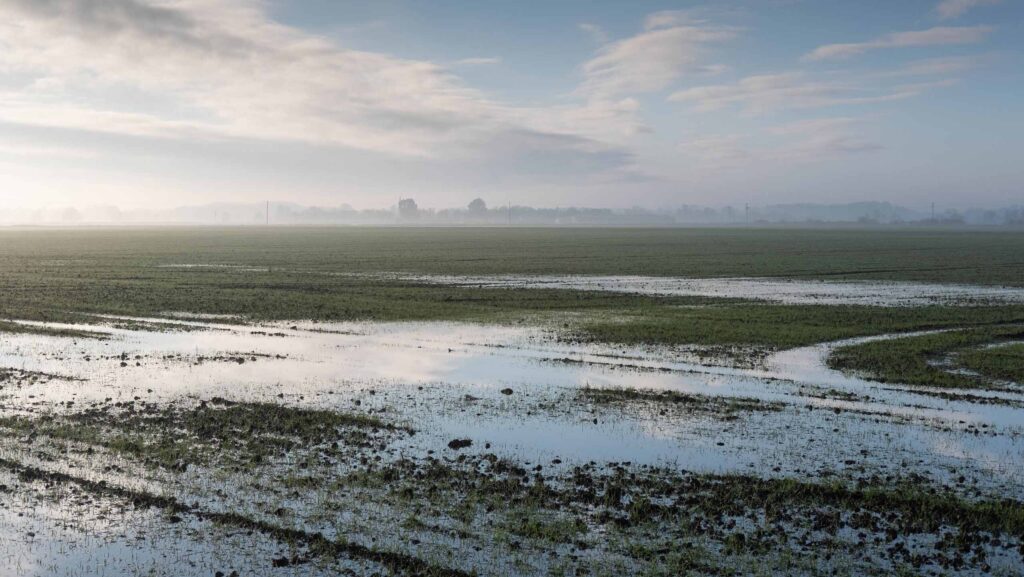Only £2.1m spent on flood recovery fund, FOI reveals
 © Tim Scrivener
© Tim Scrivener A Freedom of Information (FOI) request has revealed that the UK government has spent just over £2m of an allotted £50m on its Farming Recovery Fund.
The fund was set up by the previous Conservative government to help farmers recover from flooding caused by Storm Henk in January 2024.
The fund offered grants of between £500-£25,000 to help flood-hit farmers restore their land to its pre-flood condition.
See also: Flood-hit farmer hits out at EA ‘incompetence’
It was initially only available to areas hit hard by Storm Henk, including Gloucestershire, Leicestershire, and Lincolnshire. Eligibility was later expanded to include other areas, such as Berkshire, Herefordshire, and Oxfordshire.
An FOI request made by Farmers Weekly to the Rural Payments Agency (RPA), which is in charge of disbursing the scheme’s payments, has revealed that 672 payments have been made under the scheme to date, totalling £2,143,726.
This means the average payment a individual farm is £3,190.
North Nottinghamshire and Lincolnshire – two of the worst-hit areas in the North – have received 88 and 61 payments, worth £398,514 and £192,895 respectively.
Further south, Leicestershire has received 54 payments, worth £172,962; Gloucestershire received 70, totalling £250,754; Warwickshire received 65, worth £183,511 and Worcestershire received 71, totalling £229,235.
Berkshire, Herefordshire and Oxfordshire have received 20 payments altogether, totalling £68,046.
Lincolnshire arable farmer Henry Ward’s farm at Short Ferry was under water for six months from October after the River Barlings Eau burst its banks and caused widespread flooding.
Flood-hit farmer ‘out of pocket’
Dubbed Britain’s “most flooded farmer”, Mr Ward has yet to receive any money from the fund, despite being left £100,000 out of pocket from the floods.
The NFU and the Tenant Farmers Association (TFA) have pledged to keep up the pressure on Defra and the RPA to ensure that farmers who suffered uninsurable damage to their land due to flooding can still access the fund.
NFU vice-president Rachel Hallos expressed frustration over the lack of support promised by the government for farmers impacted by the severe storms earlier this year.
She highlighted that thousands of acres of farmland remain saturated and unusable, following a challenging harvest marked by significant variations in yield and quality.
“Months later, farm businesses are still suffering from the relentless rain,” Mrs Hallos said.
Reports suggest the government will not announce updates about the fund until the upcoming Budget on 30 October, but Mrs Hallos insists that farmers need help immediately to aid their recovery.
With more heavy rain leading to further waterlogged fields, arable farmers are increasingly concerned about their ability to plant crops for the next season.
“We cannot keep getting stuck in this cycle,” she said. “We must invest in our water management systems. The Farming Recovery Fund is a vital step, but we also need a long-term strategy to protect our towns and countryside from increasingly frequent and costly flooding events.”
However, chancellor Rachel Reeves has indicated that the government must implement budget cuts to address a £2.2bn deficit in the public purse, with the agriculture sector being one area under scrutiny.
In its response to Farmers Weekly, Defra acknowledged that the winter 2023 and spring 2024 have been one of the wettest on record, which is why funding is being considered for many of the affected farmers.
Defra is expected to update its farming blog when more information regarding the Farming Recovery Fund is available, it said.
Government response
A Defra spokesperson said: “Flooding devastates communities, homes, businesses and livelihoods, and we recognise the impact that they have had on farmers and rural communities.
“More must be done to protect farmers’ businesses and homes. That is why the government is working at pace to accelerate the building of flood defences through our new Flood Resilience Taskforce, which representatives of the farming sector have an active role in.
“All farmers eligible for the initial Farm Recovery Fund set up in April have been offered payment, further information on the scheme will be set out in due course.”
